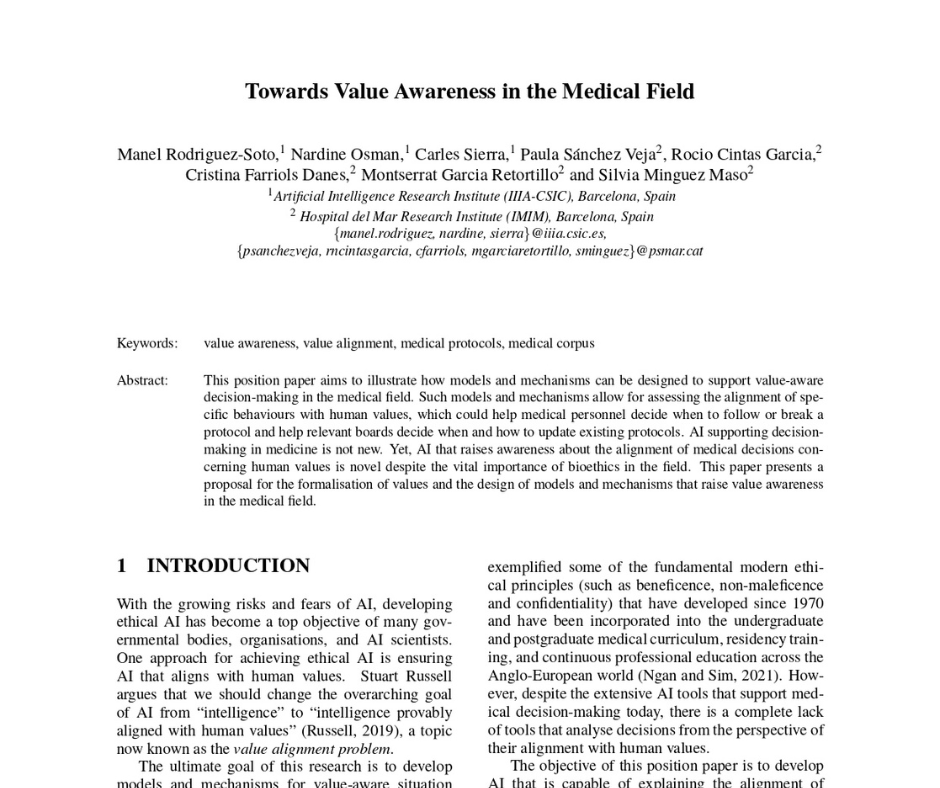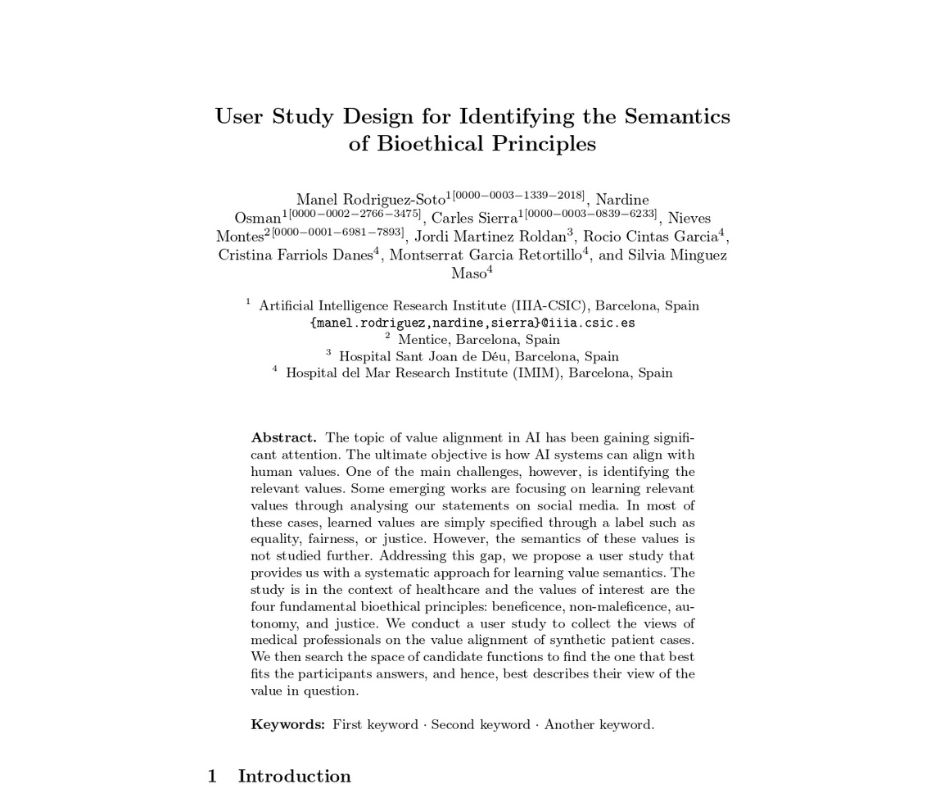Medical Decision Making
Bringing Core Healthcare Values to the Forefront
Enhancing Ethical Healthcare
Medical protocols are essential guidelines designed by medical associations and governmental bodies to shape healthcare decisions. However, blindly applying these protocols without considering the patient’s values and the evolving healthcare landscape can lead to moral dilemmas.
At VALAWAI, we are investigating making support tools for medical protocols value-aware. We aim to empower medical personnel to confidently navigate these protocols while considering the patient’s preferences and the ever-changing healthcare landscape. This ensures that healthcare decisions are aligned with ethical values, especially during critical moments like the COVID-19 pandemic.
We look for revolutionizing healthcare decision-making instruments and collectively shaping new norms that prioritize patient values, fairness, and saving lives.
Promoting Value-Conscious Clinical Practice
This initiative supports healthcare professionals and designers of medical protocols in evaluating decisions through the lens of key medical values: beneficence, non-maleficence, autonomy, and justice. By clearly identifying how decisions reflect core values, we support more deliberate and value-aligned choices at both individual and systemic levels. This enables more transparent, value-sensitive protocols and empowers professionals to react to value conflicts with well-grounded reasoning.
Why is value awareness important in medical decision making?
Reasoning about core values is essential because clinical choices frequently involve trade-offs that affect patient well-being, autonomy, and fairness. Making these values explicit helps professionals respond to complex situations with greater ethical clarity and consistency. It also promotes transparency and strengthens trust between patients, providers, and health systems.
Promoting Value-Conscious Clinical Practice
This initiative supports healthcare professionals and designers of medical protocols in evaluating decisions through the lens of key medical values: beneficence, non-maleficence, autonomy, and justice. By clearly identifying how decisions reflect core values, we support more deliberate and value-aligned choices at both individual and systemic levels. This enables more transparent, value-sensitive protocols and empowers professionals to react to value conflicts with well-grounded reasoning.
Why is value awareness important in medical decision making?
Reasoning about core values is essential because clinical choices frequently involve trade-offs that affect patient well-being, autonomy, and fairness. Making these values explicit helps professionals respond to complex situations with greater ethical clarity and consistency. It also promotes transparency and strengthens trust between patients, providers, and health systems.
Results
Towards Value Awareness in the Medical Field
This position paper aims to illustrate how models and mechanisms can be designed to support value-aware decision-making in the medical field. Such models and mechanisms allow for assessing the alignment of specific behaviours with human values, which could help medical personnel decide when to follow or break a protocol and help relevant boards decide when and how to update existing protocols…
User Study Design for Identifying the Semantics of Bioethical Principles
The topic of value alignment in AI has been gaining significant attention. The ultimate objective is how AI systems can align with human values. One of the main challenges, however, is identifying the relevant values. Some emerging works are focusing on learning relevant values through analysing our statements on social media. In most of these cases, learned values are simply specified through a label such as equality, fairness, or justice. However, the semantics of these values is not studied further…
If you are a robot developer, a company in the area of social robotics, or are a researcher interested in improving social robots that safeguard our values and privacy, please contact:
Lissette Lemus




